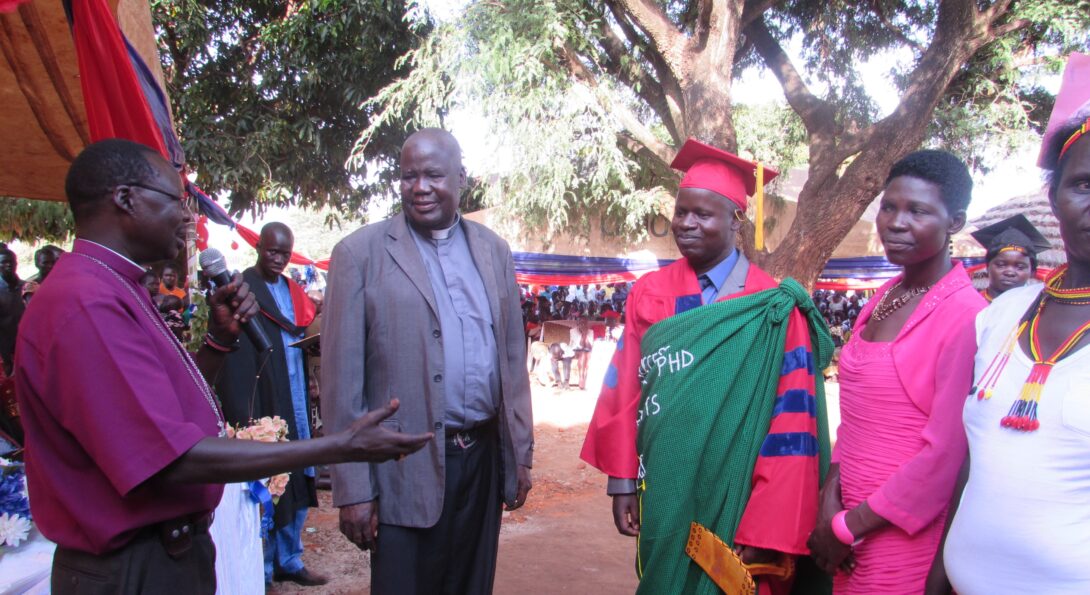The long journey home

Patrick Ojok’s resume is impressive. His life’s journey is extraordinary.
Ojok ‘15 PhD DS is head of community and disability studies at Kyambogo University, the second-largest university in Uganda. He is probably the only person in his country with a Ph.D. in his field.
A funded researcher with a long list of awards, publications and presentations in the U.S., Europe and Africa, Ojok is working to improve education and employment opportunities for people with disabilities in Africa, and speaks of running for elective office one day.
For Ojok, getting this far meant overcoming almost-impossible obstacles.
“In my village, to people who know where I came from, my story is both amazing and puzzling,” he says.
Ojok is an international scholar with a bachelor’s degree earned in Uganda, a master’s from the University of Oslo in Norway and a Ph.D. from UIC.
But his introduction to education in his home village of Awach, was not exactly telling.
He headed off to school for the first time at age 8, shirtless and without school supplies. His uncle, embarrassed, ordered him home, and young Ojok refused to return until the next year.
“I dropped out of school the first day I went to school,” he remembers.